Joe Biden’s pardon of Hunter Biden has landed at an awkward moment for classical liberals, when many of us are transitioning from caring a lot about civic norms to caring not at all.
Where you are in that transition will determine how outraged you feel about the president’s act of clemency. If you haven’t yet fully shed your idealism about America following Donald Trump’s reelection, you’re disgusted. If you have, you’re wondering why the Biden family shouldn’t exploit the country’s regnant postliberalism to serve its own ends.
I must be near the midpoint of the transition because I see it both ways.
The case for disgust.
“For my entire career I have followed a simple principle: just tell the American people the truth,” the president said toward the end of his statement announcing the pardon. But he didn’t tell us the truth in this matter. He lied, brazenly and repeatedly.
“He’s always been a liar,” you might say, fairly enough. But when he and his staff promised reporters, over and over (as recently as last month!), that he wouldn’t pardon Hunter Biden for federal gun and tax crimes, the president was telling a lie that carried unusual civic weight. By ruling out clemency for his son, he was vouching for the integrity of the Justice Department. So great was his faith in the justness of American law enforcement amid the right’s populist onslaught, it seemed, that he would decline to overrule its treatment of his own child.
“Our justice system has endured for nearly 250 years, and it literally is the cornerstone of America,” Biden said in May of this year of Trump’s conviction in the Stormy Daniels matter. He trusted America’s institutions and wanted you to do so too.
Six months later, he hasn’t just overruled that same justice system; in doing so, he made clear that he, er, doesn’t trust it. “No reasonable person who looks at the facts of Hunter’s cases can reach any other conclusion than Hunter was singled out only because he is my son—and that is wrong,” Biden said in his statement. “There has been an effort to break Hunter—who has been five and a half years sober, even in the face of unrelenting attacks and selective prosecution. In trying to break Hunter, they’ve tried to break me—and there’s no reason to believe it will stop here.”
The vague, pregnant reference there to “they” has a Trumpian demagogic stench about it. Biden implies elsewhere in his statement that he’s referring to his “political opponents in Congress” who spent years investigating Hunter, but it wasn’t House Republicans who indicted and successfully prosecuted his son. It was his own Justice Department.
And so Joe Biden, alleged institutionalist, will leave office affirming MAGA suspicions that federal law enforcement has political motives and can’t be trusted to behave evenhandedly. When he says at one point, “I believe in the justice system, but as I have wrestled with this, I also believe raw politics has infected this process and it led to a miscarriage of justice,” he sounds like a Republican hack on a CNN panel grousing about the charges that Jack Smith brought against Trump. You wanted a more populist Democratic Party? Congratulations—you’ve got it.
One wonders: If it’s true, as Biden claims, that the DOJ went harder on Hunter than it would have on a defendant guilty of similar crimes, why did he vow not to pardon his son in the first place? There is a case to be made that the department “overcorrected” in charging Hunter too sternly after a federal judge rejected the sweetheart deal prosecutors had offered him initially, but that case has been apparent for months. If the president was stewing all along about the alleged injustice of it all, why did he ever rule out clemency to begin with?
For that matter, if he believes the punishment didn’t fit the crimes, why grant Hunter a full pardon instead of commuting his sentences to something more fair? And not just a full pardon, mind you, but one of the broadest in American history, immunizing the younger Biden from all crimes charged and uncharged that he might have committed between January 1, 2014, through Sunday night—a period, not coincidentally, encompassing Hunter’s shady business dealings overseas. Only Richard Nixon has received clemency as sweeping.
The easy reply to that is that the president was worried that Trump’s Justice Department would eventually come for his son if he didn’t receive full immunity from prosecution. That too, though, was something he could have considered—and presumably did—when he began promising months ago not to pardon Hunter. What’s changed now, apart from the reality of a MAGA DOJ having become far more vivid in the last few weeks?
Frankly, I think Trump’s secret police will have bigger fish to fry than someone like Joe Biden’s son, who no longer has any political salience. Trump was always more likely to pardon Hunter himself than to sic Kash Patel on him, in fact—which is another reason for disgust at Biden’s pardon.
It’s disgusting in its own right, as an act of blatant nepotism by a selfish man who sabotaged his party and his country this year by prioritizing his own interests over theirs. But it’s also disgusting as a political gift to his nemesis on the eve of the federal government being turned into a subsidiary of Trump Inc. Had Trump eventually pardoned Hunter, he would have done so to “balance” pardons of figures like the January 6-ers in hopes of legitimizing the latter. See, he’s not just doing favors for cronies, his supporters would have said; by granting clemency to Hunter, he’s striking a bipartisan blow against “politicized justice”!
By pardoning Hunter himself, Joe Biden has done Trump’s dirty work for him. Now that the sitting president has abused the pardon power to do favors for a crony, Democrats have no leg to stand on politically when Trump starts doing the same thing next month.
And of course Biden has confirmed the Trumpian narrative about “the system” being rigged. Populists believe classical liberalism is a racket whose norms and institutions pay lip service to equal treatment for all while catering to the well-connected. The president placing his lowlife son above the law after two years of Democrats complaining about Republicans wanting to do the same with their lowlife presidential nominee is lab-designed to validate those populist prejudices. It’s an advertisement to Americans to lean into nihilism and stop taking liberal norms seriously at the very moment, with Trump preparing to take power, that classical liberals are desperate to rouse the public’s civic consciousness.
“For my friends, everything; for my enemies, the law”: That’s a maxim that I’ve used repeatedly to describe postliberal politics, but it describes the Hunter Biden pardon to a T. There’s no way to digest it without concluding that most of the president’s chatter about “norms” was an opportunistic exercise in anti-Trump political branding, not a matter of heartfelt belief.
It’s an egregious betrayal. However much contempt you’re feeling for him today, it isn’t enough.
On the other hand …
The case for equanimity.
I repeat here the question that I asked the day after the election of my fellow Never Trumpers: If you’re still hellbent on saving liberal institutions from postliberalism, who exactly are you saving them for?
Most Americans don’t care about institutions or norms. In a political vacuum, where two candidates on the ballot were identical in every respect except that one was liberal and the other postliberal, maybe the liberal would win. (Although at this point I wouldn’t bet my life on it.) But elections aren’t held in vacuums. When the cost of living is up, when the border is insecure, Americans view liberalism as a luxury, not a necessity. There’s no clearer takeaway from this year’s result than that.
And that—voters’ indifference to liberalism—is the optimistic read. The pessimistic one is that they’ve come to actively prefer postliberals. Lost in the coverage of his coup attempt in late 2020 and early 2021 was the fact that Trump at the time issued some of the swampiest, most corrupt pardons the country has ever seen. Despite that, despite the coup plot, despite felony convictions and dozens of outstanding felony charges, voters didn’t just hand him the presidency last month—they handed him a plurality of the popular vote.
He’s a “fighter.” He doesn’t let little things like norms stop him. That’s who most Americans want now.
“A country that reelects Trump (and Kash Patel/Pam Bondi) is not worthy of Biden sacrificing his son to a sense of justice the country doesn’t actually believe in,” comedian J-L Cauvin said in defending Hunter Biden’s pardon. Others have made the same point in stronger language. It’s fair to call Joe Biden a liar, a hypocrite, and a fair-weather institutionalist for granting clemency in this case, but if you’re knocking him for undermining liberal norms, I regret to inform you that those norms were laid to rest on November 5. There’s no public civic consciousness left to rouse.
In which case, why shouldn’t the president drop all pretenses about “norms” and do what he can to protect his son legally from Trump’s Justice Department? One might ask the same thing about Kamala Harris conceding the election instead of alleging that the vote was rigged against her. At what point do we regard Democrats as chumps for not leaning into the sort of political nihilism that American voters just endorsed?
Again: If liberals are intent on setting a good example, who is the example supposedly for?
A norm is not a suicide pact, as Jonathan Last put it on Monday. Norms won’t endure unless both sides—not to mention the wider electorate—see value in restraining bad behavior. Trump’s side does not. And the plainer it becomes that there’s no electoral penalty for that, the harder it’ll be for Democrats not to emulate his worst excesses if they can gain some advantage by doing so. As much as we might admire Harris morally for not contesting the election, politics is a field in which someone wins and someone loses. Based on recent American history, her party would have been more likely to win the next election if she had been less conscientious last month about conceding.
“Fine,” you might say, “but Democrats haven’t gained any political advantage by granting a Trumpy pardon to Hunter Biden. No one benefits from that except Hunter himself.”
Is that so?
Trump’s not-so-secret weapon has always been the spectacular volume and diversity of norm-breaking in which he and his henchmen engage. There’s forever some outlandish tweet being crowded out of the news cycle by a petty scandal, which is itself being crowded out by reports of infighting within his team, which is in turn being crowded out by a hair-raising legal maneuver or power grab or constitutional crisis he’s contemplating. Americans have grown desensitized to all of it. There’s no more marginal outrage to be felt in each new excess.
As a case in point, on Saturday Trump named Charles Kushner as his next ambassador to France. That’s a triple whammy of norm-busting in one swoop: Kushner is a nepotist (he’s Jared Kushner’s father), was pardoned by Trump in his first term for various federal crimes, and has no apparent qualifications for a diplomatic post with a major ally. But his nomination isn’t even close to being the sleaziest Trump made this past weekend. Kushner wasn’t even the only in-law given a job, in fact. Americans will barely notice his appointment amid the daily Trump din.
But when Joe Biden, establishment dinosaur and head of the “norms” party, turns around and hands a pardon to his crooked son, that feels like a real scandal. Americans aren’t desensitized to the president’s corruption; look no further than bad-faith Trump apologists like Scott Jennings, who had the nerve to sanctimoniously call for resignations over an act of executive sleaze. Biden’s legacy, and possibly his already low approval rating, will take a serious hit from this.
All of which explains why it’s actually silly to worry about Hunter’s pardon providing political “cover” for Trump’s forthcoming corrupt grants of clemency. No matter what Joe Biden did or didn’t do, Trump was always going to behave corruptly in abusing his pardon power and Americans were always going to not care. They know what they got when they brought the Trump circus back to town. When he frees hundreds of January 6 rioters next month, I’ll be surprised if his job approval drops so much as a point, if it drops at all.
The Hunter pardon is, perhaps, a small step toward conditioning Americans to feel as numb to Democratic corruption as they feel about Trump’s. There’s some cynical political benefit to the wider party in that, no?
Ending the pardon power.
The same goes for the cries heard on Sunday night after Biden announced clemency for his son that it’s time for a constitutional amendment to limit the pardon power.
That advice is well taken: Thanks to the Supreme Court, on January 20 Trump will gain the authority to immunize executive branch officers for whatever federal crimes they commit on his behalf and to be completely immune from criminal prosecution himself in doing so. In a virtuous country, the pardon power is a way for the president to show mercy to repentant convicts. In a country as rotten as ours, it’s a license for the president to break the law with impunity.
I would get rid of the pardon power altogether if I could, as we no longer elect people fit to wield it responsibly. But America’s not going to get rid of it or even to reform it; Republican voters are too amoral themselves to ever support a constitutional amendment that would limit Trump’s power to place his henchmen above the law. And, in a way, I can’t blame them. If they get to abuse the pardon power willy-nilly to free assorted Trump cronies like Paul Manafort and miscreants like the January 6 rioters while Democrats face an outcry when they use it occasionally to spring a Hunter Biden or a Marc Rich, that’s a good deal for the GOP. It means that the norm against corrupt pardons operates mostly, although not entirely, to restrain the left.
The only way in theory to get those Republican voters to see the virtue of limiting the pardon power is for Democratic presidents to enrage them by abusing it on a Trumpian scale. Again, the Hunter pardon is a small step in that direction. If the outrage over it ends up generating bipartisan introspection over executive clemency power, it will have achieved something civically useful.
But it probably won’t, right? In all likelihood, a campaign of ever more corrupt pardons by Joe Biden over the final seven weeks of his term would, rather than inspire bipartisan disgust, generate exactly the sort of desensitization to corruption that I described earlier. Instead of rallying around a constitutional amendment to limit presidential clemency, the two parties will grow inured to them and come to expect corrupt pardons as just another perk of winning the White House, like getting to nominate federal judges.
Having leaned as far into political nihilism as we already have, I don’t think realistically there’s a way to lean out. Both sides will start leaning in further until the country falls over.
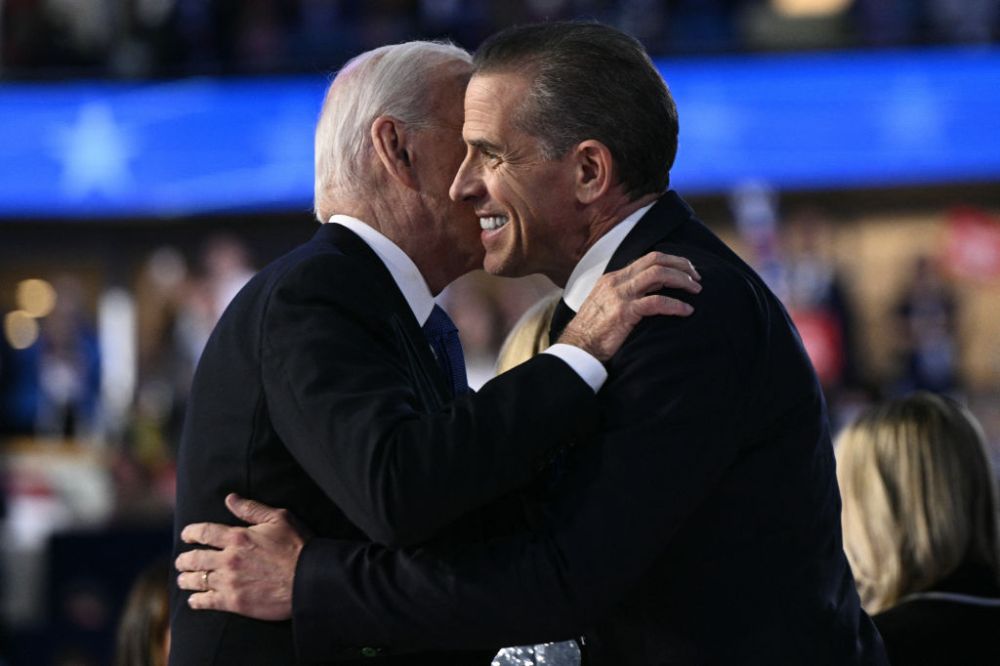

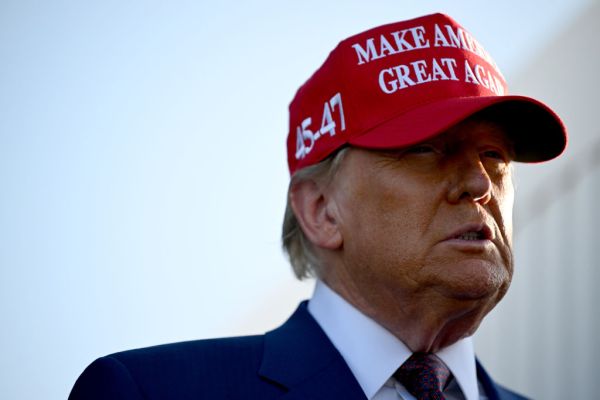
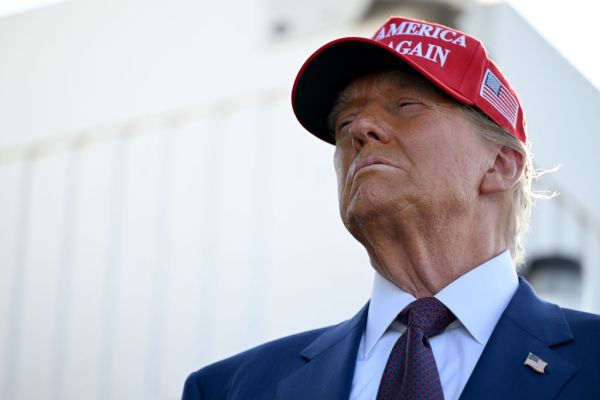
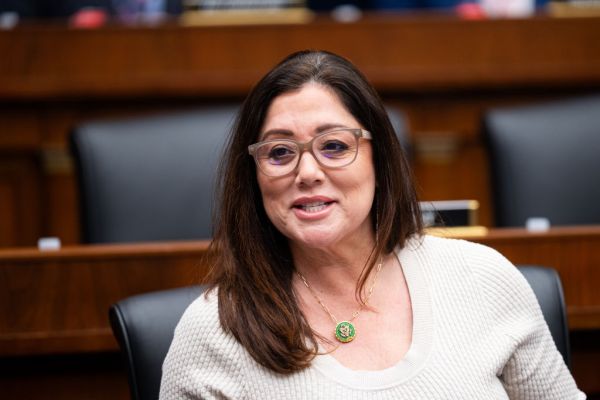

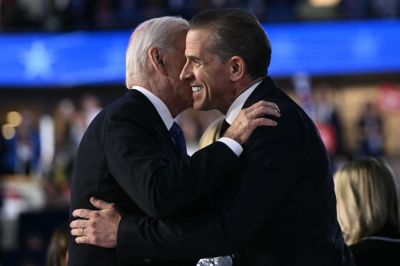
Please note that we at The Dispatch hold ourselves, our work, and our commenters to a higher standard than other places on the internet. We welcome comments that foster genuine debate or discussion—including comments critical of us or our work—but responses that include ad hominem attacks on fellow Dispatch members or are intended to stoke fear and anger may be moderated.
With your membership, you only have the ability to comment on The Morning Dispatch articles. Consider upgrading to join the conversation everywhere.